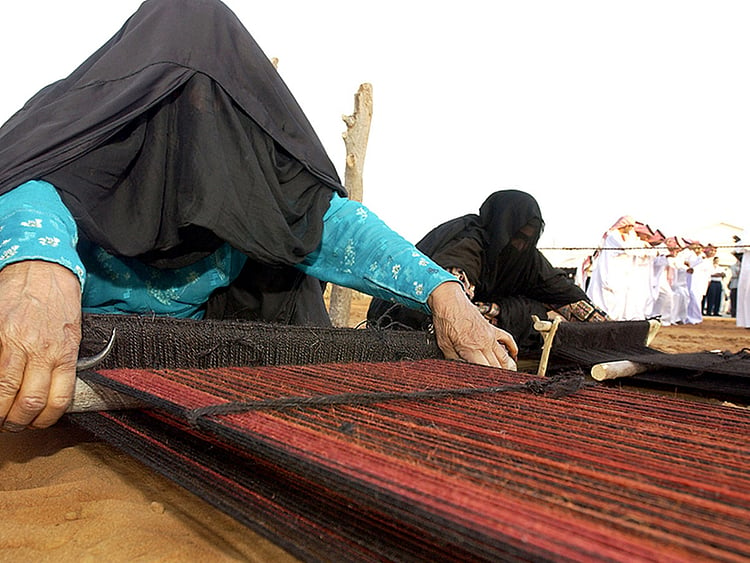Al Sadu Bedouin weaving added to Unesco Intangible Heritage List
Traditional Saudi Arabia, Kuwait technique used by Bedouin women in rural communities

Abu Dhabi: Unesco has inscribed Saudi Arabia and Kuwait’s traditional weaving of Al Sadu on its Intangible Heritage list on Wednesday.
Al Sadu is a traditional weaving by Bedouin women in rural communities to make soft furnishings and decorative accessories for camels and horses.
The Representative List of the Intangible Cultural Heritage of Humanity contains entriesthat “help demonstrate the diversity of cultural heritage and raise awareness about its importance,” Unesco said.
Unesco added traditional weaving of Al Sadu refers to the conventional woven textile made by Bedouin women.
In Arabic, ‘Al Sadu’ means weaving done in a horizontal style. The weaving is a form of warp-faced plain weave made on a ground loom. The cloth forms a tightly woven, durable textile and the weavers use natural fibers found in their natural environment.
“The patterns found in Bedouin weaving reflect the desert environment in its simple, pure form, featuring geometric designs combined to flow in rhythmic repetition and symmetry. Weavers also use bright colors such as reds and oranges to liven up the surroundings. The beauty of each woven item depends on the quality of the spinning and weaving and the expertise of the weaver – the finer the yarn, the more pronounced and delicate the structure and design pattern,” Unesco added.
Unesco explained that the primary bearers of Al Sadu are older Bedouin women who are master weavers. Master weavers play a crucial role in transmitting the related skills to others, most often within the household. Also, associations and educational organisations play an essential role in passing on skills and knowledge through classes or workshops.
Nowadays, Al Sadu has become less a functional object, and more an object signifying a tradition and a deep culture.
Sign up for the Daily Briefing
Get the latest news and updates straight to your inbox
Network Links
GN StoreDownload our app
© Al Nisr Publishing LLC 2025. All rights reserved.